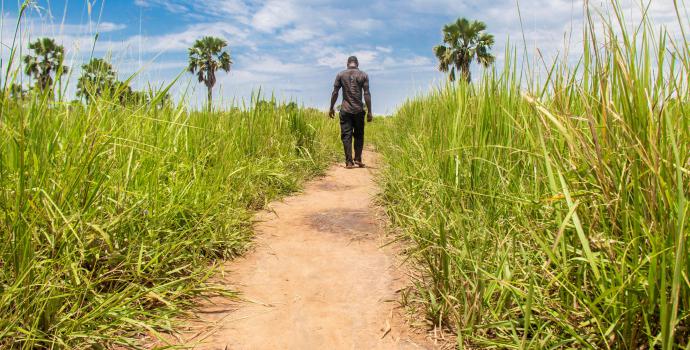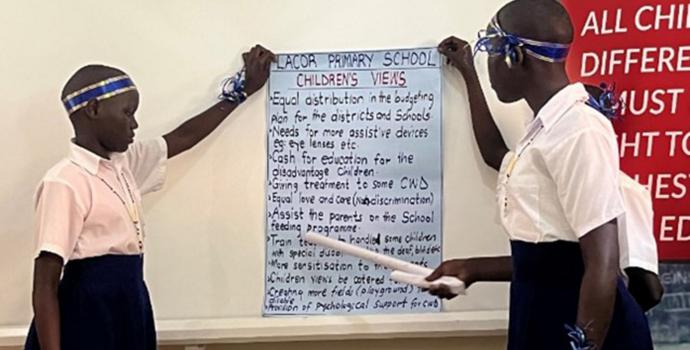Ugandan youth speak out on the impact of Covid-19

Save the Children asked young people aged 18-24 in northern Uganda about their experiences of the Covid-19 outbreak and lockdown so far.
“This Covid-19 period has handicapped us,” says Simon in Nwoya district. “Youth who are bread winners like myself are no longer able to provide even basic needs like food to our families.”
“This has sparked big family misunderstandings and domestic violence.”
Unemployment is high in northern Uganda and most youth who can earn an income do so through small-scale trades such as selling food, hairdressing, welding and driving boda-boda motorcycles to transport goods and people.
All of these were closed at the onset of the lockdown in Uganda, when measures were put in place to stop the spread of Covid-19. Like many other countries, Uganda has banned public gatherings and all public transport, closed schools and restricted movement between districts. It’s so far helped keep the outbreak under control, but is having a hard impact on impoverished youth.
Simon says that more young people are borrowing and getting into debt to buy food and other essentials, as food prices rise as the lockdown goes on. Food supply has decreased as farmers struggle to transport their produce to markets, and many markets have closed due to social distancing procedures.
According to Simon, some young people have become overwhelmed at the stress of the situation and the difficulty to support their families. “They have resorted to running away and hiding at their friend’s homes!” he says.
Charles, from Gulu district, is worried about a rise in teenage pregnancy and child marriage.
“Ever since schools were closed, so many girls and boys are idle and in one place,” he says. “We feel so confined to one environment. We can no longer participate in social networks like sports galas, community dialogues and religious activities. They are keeping themselves busy by getting involved in behavior which could lead to unwanted pregnancies and child marriage. Every day I see young girls being around boys almost from morning to evening and sometimes until late in the night.
“I heard a rumour that in some villages parents are giving their girls to men for marriage so that they can get money for food.”
Charles is part of a Save the Children project that supports local youth to advocate for the rights of young people. He says he would normally go to the villages and speak to the local leaders to confirm such rumours and get the community to take action, “but I haven’t gone there to confirm because movement is restricted.”
Providing young people with support at this time is harder than ever. Save the Children protection workers in northern and eastern Uganda are dealing with an increase in cases of young girls forced to sell sex in return for cash, food, or even sanitary products.
During the Ebola outbreak in Sierra Leone, teenage pregnancy increased by around 65 percent due to the social and economic impact of the crisis – and it is expected that the Covid-19 outbreak will also bring an increase.
Scovia, a teenage wife in Amuru district, says the restrictions on movement are also limiting young people’s access to sexual and reproductive health.
“I wanted to try contraceptives, but the nearest health centre to my home is around 15kms away and the only way to go there is by motorcycle which is not allowed. I’m only praying to God I don’t get pregnant.”
More positively, young people noted that the lockdown period has allowed them to have more time with family members and they have bonded more as a result.
While the lockdown measures are necessary to stop the spread of the outbreak, the impacts are being felt by vulnerable young people across Uganda. Youth groups supported by Save the Children are calling on the Government to ensure that food and other basic items like soap and face masks are provided to young people, to help alleviate the social and economic impact on their lives.




